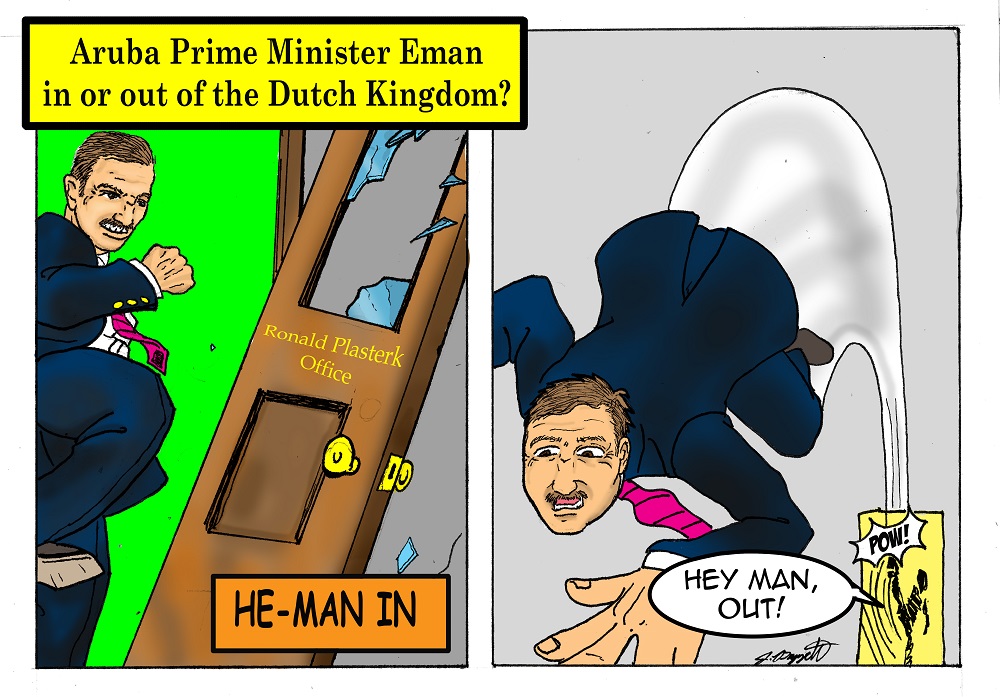
Philipsburg, St. Maarten — In an unexpected political maneuver, Aruba’s Prime Minister Mike Eman has submitted a draft Kingdom Law on Kingdom Disputes (Rijkswet Koninkrijksgeschillen) to the Dutch House of Representatives. The move, carried out with little fanfare, caught many observers in The Hague and the Caribbean off guard.
See Dutch news report on DossierKoninkrijksrelaties.nl>>>
The proposal, backed by letters of consent from the parliaments of Aruba, Curaçao, and St. Maarten, would give the Dutch Council of State (Raad van State) the authority to adjudicate legal disputes within the Kingdom. Importantly, the Council’s rulings would be binding, a longstanding demand of the Caribbean countries seeking more equality in Kingdom relations.
Why this is remarkable
What makes the development particularly striking is that it comes from Mike Eman — the same Aruban leader once sent packing from The Hague by then-Dutch State Secretary Raymond Knops during heated disputes over autonomy and governance. As Cusha Cartoons once illustrated back in 2016, Eman was caricatured being literally thrown out of the Dutch Ministry’s office after confronting Minister Ronald Plasterk about Aruba’s right to appoint its own governor. That cartoon, titled “The Dutch Asking Too Much,” symbolized the imbalance in Kingdom relations that has haunted discussions for decades.
As Cusha Cartoons once illustrated back in 2016, Eman was caricatured being literally thrown out of the Dutch Ministry’s office after confronting Minister Ronald Plasterk about Aruba’s right to appoint its own governor. That cartoon, titled “The Dutch Asking Too Much,” symbolized the imbalance in Kingdom relations that has haunted discussions for decades.
Now, nearly a decade later, Eman is back — this time quietly placing a carefully constructed law on the table in The Hague, one that could fundamentally reshape how conflicts between the Netherlands and the Caribbean countries are resolved.
Implications for St. Maarten
For St. Maarten, the draft law could provide:
- Legal certainty in disputes with the Netherlands or other Kingdom partners.
- Stronger footing in negotiations, as decisions would no longer be merely advisory.
- Concerns over neutrality, since the adjudicating body remains a Dutch institution, raising questions about equal representation of Caribbean voices.
What’s next
The bill now enters parliamentary debate in the Netherlands, where it is expected to draw scrutiny from both Dutch lawmakers and Caribbean representatives. For the CAS countries, the fact that such a proposal is moving forward at all — and with their consent — signals a significant step in the long and contentious road toward a more balanced Kingdom relationship.
###
ADVERTISEMENT














